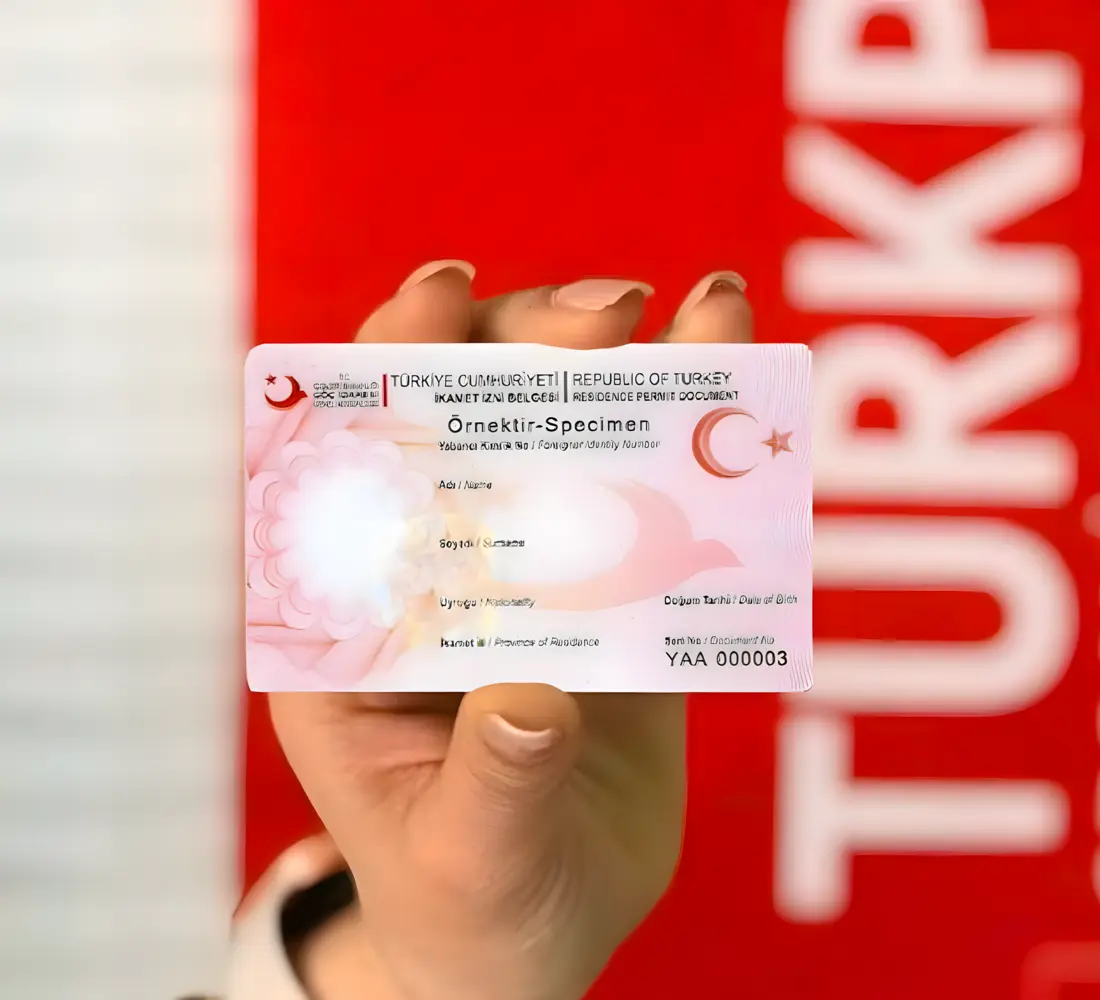In this article dedicated to the Mbany Real Estate website, we will thoroughly discuss the differences between easement deeds in Turkey and other types.
We will explain what an easement deed is in Turkey, review different types of property deeds, and discuss the legal and practical differences between easement deeds and title deeds (Tapu). We will also shed light on property ownership deeds and Tapu types such as the "red Tapu" and "blue Tapu."
We will also cover the conditions for purchasing properties in Turkey, the laws governing these processes, and property registration procedures.
The article aims to provide a comprehensive guide that helps investors and interested parties understand the legal and practical aspects of real estate in Turkey, contributing to informed and wise investment decisions.
What is an Easement Deed in Turkey?
Definition of Easement Deed
An easement deed in Turkey is a legal document proving an easement right attached to a specific property. The right grants the holder the right to use part of another property or benefit from certain services related to the property.
This document is an important tool in regulating the relationship between neighbouring properties, as it guarantees the rights of the party benefiting from the easement and clearly defines their obligations and rights.
This deed documents agreements that include establishing access corridors or utility lines, such as electricity and water.
The Importance of the Easement Deed in Real Estate Transactions
The easement deed plays a central role in protecting the rights of the involved parties and defining the legal responsibilities between them.
It helps avoid future disputes by clarifying the rights and obligations related to the property, thus enhancing trust between buyers and sellers and contributing to market stability.
Furthermore, the deed serves as a legal guarantee ensuring the continued provision of shared services between properties without renegotiating each time.
Uses of the Easement Deed in Turkey
The easement deed is used in many cases, such as organizing shared passageways, installing shared infrastructure like electricity and water, or regulating sight and ventilation rights between properties.
It is also beneficial in large real estate projects that require cooperation between multiple owners to provide shared services and maintain the quality of life in residential and commercial neighbourhoods.
Types of Property Deeds in Turkey
Full Tapu Deed
The full Tapu deed is one of the most secure and widely used types of property deeds, as it includes all the details related to the property, such as its location, boundaries, area, and permitted uses.
This type of deed provides comprehensive legal protection for the owner, granting them full ownership rights and protecting them from future disputes.
The full Tapu deed is characterized by its accuracy in documenting the data, making it the ideal choice for investors seeking security and stability in their real estate investments.
Shared Ownership Deed
A shared ownership deed allows more than one party or individual to own a property, with the shares and rights of each partner clearly defined.
This type of deed is based on detailed agreements that specify how the property will be managed and how profits or maintenance costs will be distributed.
It is a suitable option for joint investment projects or when a property is owned by several individuals who want to invest in the real estate market jointly.
Agricultural and Residential Tapu Deeds
Agricultural and residential Tapu deeds distinguish between properties' uses based on their nature; agricultural properties are subject to specific laws and regulations to protect agricultural lands from unlawful conversion.
Meanwhile, residential properties are governed by laws designed to improve the quality of life and regulate construction and
These types of deeds help ensure optimal land use according to its type, contributing to a balance between urban development and the preservation of agricultural environments.
The Difference Between the Easement Deed and Tapu
Legal Differences Between the Easement Deed and Tapu
The main difference between the easement deed and Tapu lies in the rights they document.
While Tapu shows full and detailed ownership of the property, the easement deed only documents the easement right, which allows the beneficiary to use part of the property or receive specific services.
These legal differences directly affect the scope of rights and obligations, as certain restrictions can be imposed on the property under the easement deed that may not appear in the Tapu registry.
When is Each Type Used?
The easement deed is used when two parties agree to benefit from part of the other’s property, such as a shared passage or service line. In contrast, the Tapu documents full property ownership during purchases or transfers.
The appropriate type depends on the desired use. The easement deed would be more suitable if the goal is to obtain additional usage rights without transferring full ownership.
The Impact of Each Type on the Owner’s Rights
The choice of deed type significantly impacts the owner’s rights. With the full Tapu, the owner enjoys absolute ownership rights without restrictions, making acting freely with the property easier.
In contrast, with the easement deed, the rights are defined according to the agreement, and certain limitations may be imposed on the full disposal of the property. Thus, a thorough understanding of legal obligations is required before signing any agreement.
Property Ownership Deed in Turkey
The Role of Property Ownership Deed in Documenting Properties
The property ownership deed is a fundamental document that proves the owner’s right to the property and ensures the integrity of the purchase process.
It documents all information related to the property, such as its location, boundaries, area, and uses, contributing to protecting the owner’s rights from future disputes.
It is also a legal reference that can be referred to in any conflicts or disputes regarding ownership.
How to Obtain a Property Ownership Deed
Obtaining a property ownership deed involves submitting a set of official documents to the relevant authorities in Turkey, such as the Ministry of Justice and the Tapu Office.
The process begins with inspecting the property to ensure it is free of legal issues. After that, an application is made along with all required documents, such as the purchase contract and personal identification documents.
Procedure is completed after paying administrative fees and confirming the accuracy of the information, leading to the issuance of the final deed that legally guarantees the owner’s rights.
Tapu in Turkey and Its Types: "Red Tapu" and "Blue Tapu"
The Difference Between the Red Tapu and Blue Tapu
The term "Red Tapu" refers to properties with certain legal restrictions or specific obligations, such as debts or prior agreements, which require additional caution when dealing with them.
On the other hand, the "Blue Tapu" refers to properties whose ownership is documented cleanly and free from restrictions, making them a safer choice for investors and buyers seeking transparent, trouble-free transactions.
When is Each Type Used?
The Red Tapu is usually used in cases that require property registration with certain legal conditions, such as prior obligations or subscriptions to shared services.
Meanwhile, the Blue Tapu is used in transactions for properties that meet all legal requirements without restrictions, making the buying and selling easier and faster.
This distinction helps clarify the property's status for the buyer, enabling them to make an informed decision.
Purchasing Property in Turkey and the Governing Laws
Conditions for Foreigners Purchasing Property
Turkish property laws stipulate specific conditions for foreigners wishing to purchase property, such as obtaining the necessary approvals from government authorities and providing documents proving their identity and nationality.
These conditions protect foreign investors’ interests by guaranteeing their legal rights and providing a transparent and secure investment environment.
The conditions also include verifying that the property is free of legal issues or debts, ensuring the safety of the transaction.
Required Documents for Completing the Purchase Process
Some key documents required to complete the property purchase process in Turkey include the original sale contract, previous ownership certificates, and personal identification documents such as a passport.
Documents proving the transaction's validity, such as government approvals and certification from the relevant authorities, are also required.
These documents help ensure the credibility of the transaction and facilitate the property registration and ownership transfer procedures legally and smoothly.
Property Registration in Turkey and Its Legal Procedures
Steps for Registering the Property at the Tapu Office
The property registration process begins with applying to the Tapu Office and submitting all the required official documents.
The information is then thoroughly checked to ensure its accuracy and alignment with the state records.
The steps include reviewing the documents, determining the property boundaries, and verifying its freedom from disputes.
After completing these procedures, the official Tapu deed documents the property ownership legally.
Fees and Legal Requirements
The property registration process requires the payment of administrative fees, which vary according to the property's value, area, and type.
Additionally, legal requirements must be met, including submitting all necessary documents and permits.
Complying with these requirements ensures the transaction's validity and avoids any future legal issues arising from improper or incomplete registration.
Frequently Asked Questions About the Difference Between Easement Deeds in Turkey and Other Types
What is an Easement Deed in Turkey?
An easement deed is a legal document proving the easement right on a specific property, allowing the beneficiary to use part of the property or benefit from certain services. It is necessary to document joint agreements between neighbors or in real estate projects.
What is the Difference Between the Easement Deed and Tapu?
The Tapu deed documents full property ownership without restrictions, while the easement deed specifies the rights to shared use or services associated with the property without transferring ownership.
What Types of Property Deeds are Available in Turkey?
Property deeds in Turkey vary between full Tapu, which offers complete legal protection, shared ownership deeds, which regulate the ownership of a property by multiple parties, and agricultural and residential Tapu deeds, which define property usage based on its nature.
How Can Foreigners Purchase Property in Turkey?
Foreigners must comply with the specific legal conditions for purchasing property, which include obtaining necessary government approvals and providing required official documents, while ensuring the property is free from legal issues or debts.
What Are the Procedures for Property Registration in Turkey?
The procedures begin with submitting an application to the Tapu Office. They are followed by verifying the documents, determining the property boundaries, paying administrative fees, and fulfilling all legal requirements to issue the official Tapu deed.
Conclusion: The Difference Between Easement Deeds in Turkey and Other Types
In conclusion, understanding the difference between easement deeds in Turkey and other types is crucial for anyone interested in real estate investment or purchasing a property in Turkey.
Investors and buyers can make decisions based on accurate and clear information by familiarizing themselves with the different types, such as the full Tapu, shared ownership deed, and agricultural and residential Tapu deeds.
Additionally, understanding the legal differences between the easement deed and Tapu helps protect rights and clearly define responsibilities.
Furthermore, being aware of the property purchasing and registration procedures and the laws governing them provides a secure and transparent investment environment.
We hope this article has provided all the necessary information to understand all aspects of real estate transactions in Turkey, contributing to greater investment success and a stable, secure real estate market.






